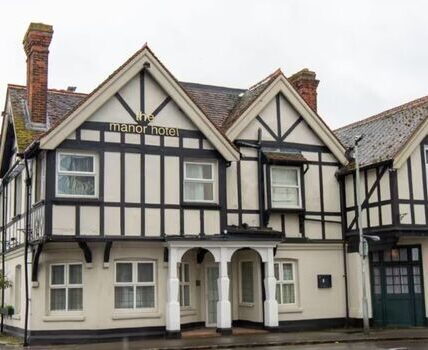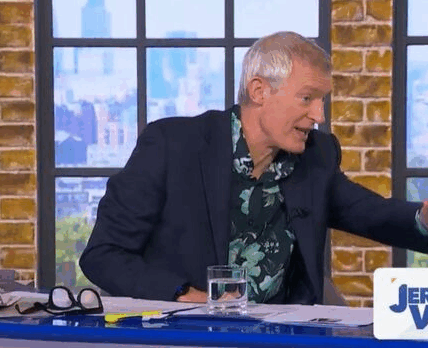House of Commons Speaker Sir Lindsay Hoyle has been urged to intervene

Commons Speaker Sir Lindsay Hoyle (Image: Getty)
House of Commons Speaker Sir Lindsay Hoyle has been urged to intervene after it emerged more than 300 MPs are refusing to provide phone numbers allowing constituents to contact them. Every MP is given a page on the House of Commons website to provide contact information and this usually includes a phone number for their Commons office, where they are provided with a taxpayer-funded landline.
But an investigation found 311 MPs do not publicly list either a Westminster or constituency number. The inquiry looked at both the official Commons website and the personal websites of MPs. It follows concern about increasing levels of abuse aimed at MPs and their staff, who are likely to be the ones answering the phone. But campaigners say it denies constituents the chance to raise concerns with their elected representatives – with older people the most affected, because they are less likely to use other means of communication such as email.
Don’t miss…
Major warning issued to 200 failing schools as 300,000 kids are let down [LATEST]
Human hearts grown in space will save lives says top astronaut [LATEST]
Fresh nightmare for Keir Starmer as school and hospital strikes threatened [LATEST]
Ed Miliband gets furious telling off for breaking promise on net zero plans [LATEST]
Later Life Ambitions, which has 250,000 members, warned that an estimated 1.6million people in the UK do not use the internet. The Government’s own Digital Inclusion Action Plan includes a warning that a quarter of the UK population is likely to struggle to use online services.
In a letter to Sir Lindsay, the campaign group said: “Age remains one of the most significant predictors of digital exclusion, with around 31% of people over 65 not using the internet at home. However, this is not just an issue for older people, and there are a number of additional factors linked to the digital divide in the UK, including socioeconomic status, region and whether a person has a disability.
“We urge you to explore the reasons behind this issue and to rectify it at the earliest opportunity. The principle that constituents ought to be able to raise issues regardless of their access to the internet should be well understood by members, and appropriate services should be available in the House.”
The Speaker’s office said he would not comment on private correspondence. Commons authorities say MPs are asked which contact details they want to make public on official web pages. Members are not required to provide specific addresses or phone numbers. This policy has been in place for several years and is not a recent change, authorities said.
An inquiry led by the Speaker, the Speaker’s Conference, is investigating the massive rise in abuse aimed at politicians.
In written evidence to the inquiry, one MP talked about getting death threats. The parliamentarian said: “I had taxis sitting outside my house and my family member’s house in the middle of the night. I was told I would be beheaded.
“The police attitude was that it was the rough and tumble of politics.”
Former MP Simon Danczuk told the inquiry about his experience as the Reform candidate in last year’s Rochdale by-election. “Thirty-six hours before polling day, I received a message from my ex-wife, who lives in Rochdale with my two young children, explaining that intruders had attempted to enter the family home in the middle of the night but were deterred by the sophisticated alarm system,” he said.
The Members’ and Peers’ Staff Association, which is run by staff working for MPs and members of the House of Lords, said researchers were asked to accompany politicians on their journeys home to keep them safe.
Don’t miss…
Brexit betrayal date released as Germany cosies up to Keir Starmer [LATEST]
Rachel Reeves on Hail Mary trip to plead with Trump to end tariffs [LATEST]
Full list of councils holding local elections and how to vote [LATEST]
Ex-Labour MP Rosie Duffield says Keir Starmer looked at her ‘like an alien’ [LATEST]
The association said: “Staffers have reported escorting these MPs back to their London residence or to a safe spot away from Westminster, thereby acting as a form of security and protection while also risking their own safety and wellbeing.
“While this expectation should not be placed on staff, the wider issue is ensuring that both MPs and staff are in a position where they can feel safe and have additional security at their disposal when they are in an uncomfortable or dangerous situation.”
The inquiry is overseen by a committee chaired by Sir Lindsay and includes 14 backbench MPs from different parties. It was set up partly as a result of intimidation of candidates in last year’s General Election, including the targeting of Labour candidates by anti-Israel campaigners. The Speaker will publish a report with findings later this year.
Eamonn Donaghy, spokesman for Later Life Ambitions and chief executive of the National Federation of Occupational Pensioners, said: “It beggars belief that hundreds of MPs do not have a phone number which constituents can call to raise issues and get help.
“Many older people are more comfortable doing business on the phone than filling in online forms or writing emails, and frankly it’s often the best way to get things done.”





